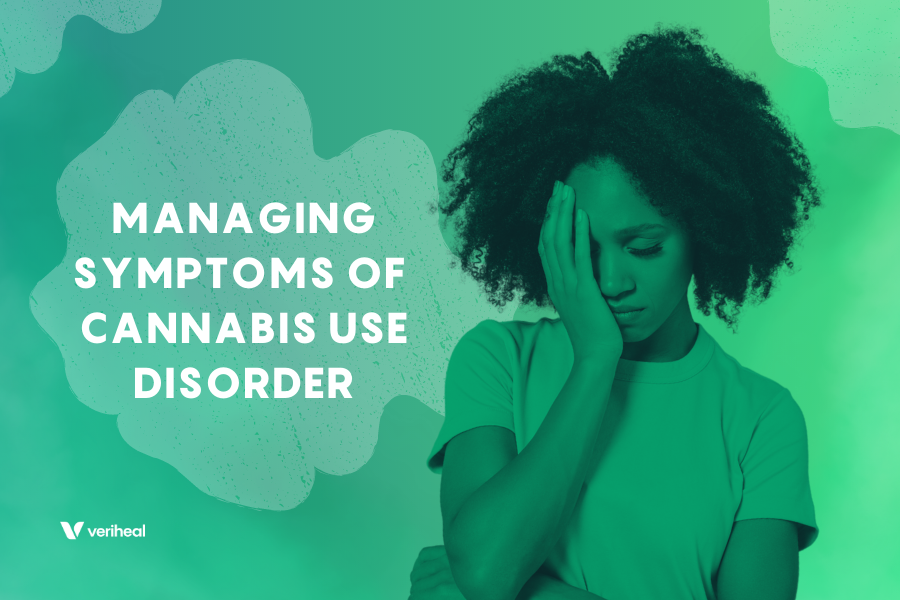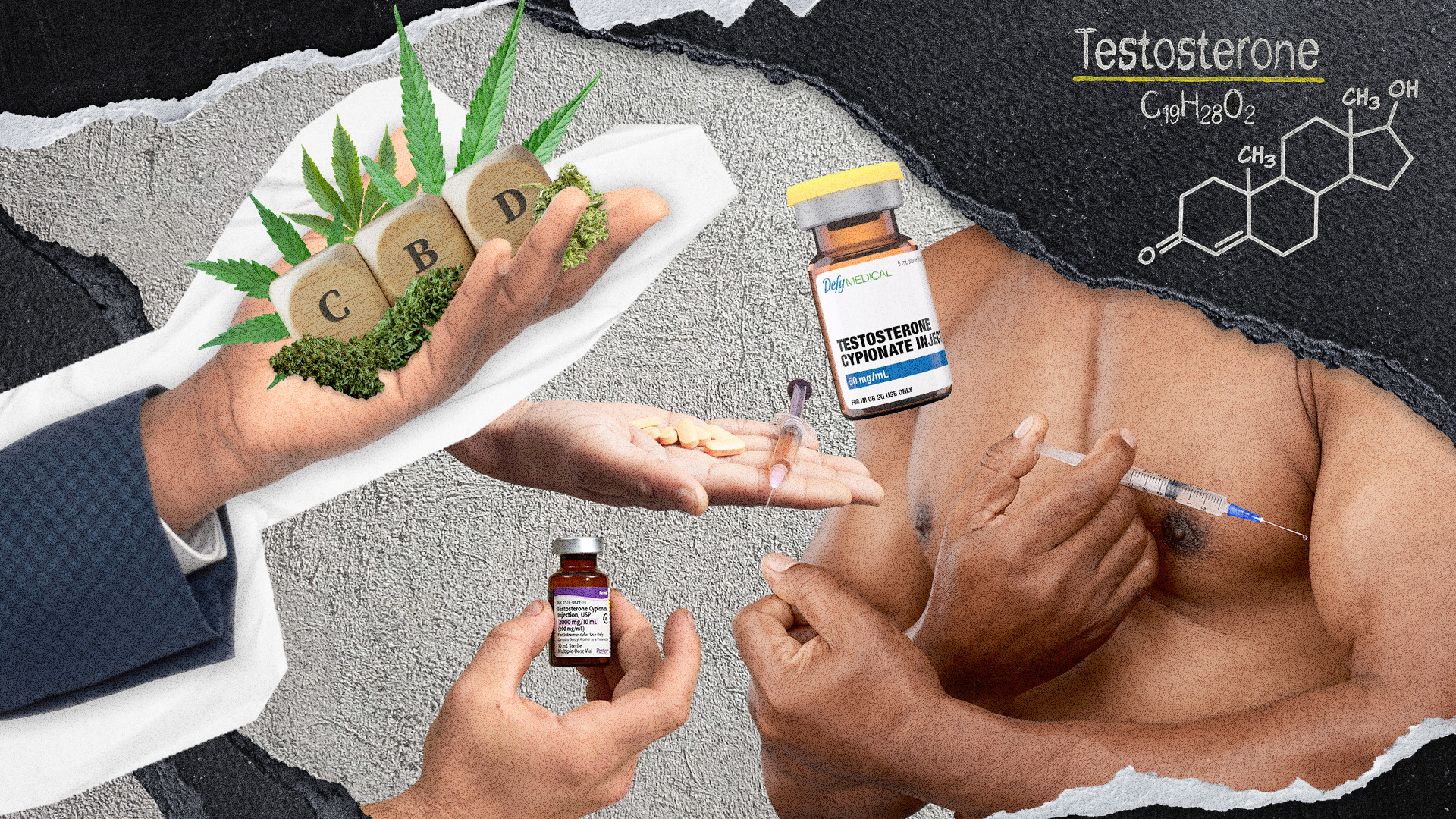Cannabis Withdrawal Syndrome can occur when frequent cannabis users stops using cannabis products. Though it can cause unpleasant side effects, these side effects can be managed. Read on for our best strategies on managing marijuana withdrawal.
Can You Experience Withdrawal Symptoms from Cannabis?
When a frequent cannabis user abruptly stops consuming, they may experience withdrawal symptoms. Formally, the Diagnostic and Statistical Manual of Mental Disorders (DSM-V) recognizes this medical condition as cannabis withdrawal syndrome, which may stem from a mental health disorder called cannabis use disorder.
Cannabis withdrawal is mild compared to other forms of drug use associated with varying substance use disorders, such as opioid or benzodiazepine addiction. Nevertheless—despite continuing discussion on the legitimacy of marijuana addiction—research is beginning to support the existence of cannabis dependence. Thus, when frequent users abruptly stop consuming cannabis, they may experience marijuana withdrawal.
What Causes Cannabis Withdrawal?
When you use cannabis, the cannabinoids delta-9-Tetrahydrocannabinol (THC) and Cannabinol (CBD) bind to CB1 receptors in our endocannabinoid system. Frequent marijuana use can impact how the brain’s receptors operate. Essentially, the brain compensates for the repeated activation of receptors by downregulating CB1 receptors.
As you continue to use cannabis, you build your tolerance to its cannabinoids. In other words, the receptors grow desensitized to the THC and other cannabinoids in the cannabis plant.
When the psychoactive agent THC is no longer being consumed, the brain and body may react to the detox in an attempt to regulate itself without the cannabinoid. This detoxification can cause unpleasant symptoms, such as sleep disturbance, nausea, restlessness, and moodiness.
That’s not to say that growing your tolerance is a bad thing. A higher tolerance can help you reap the medicinal and therapeutic benefits of cannabis while reducing negative side effects. Being prepared for the symptoms of marijuana withdrawal can help you prevent and handle them without adding stress to any comorbid health conditions.
Common Symptoms
Symptoms of cannabis withdrawal differ in severity from individual to individual. Common symptoms of cannabis withdrawal include:
Why You Should Get Your Medical Marijuana Card
Veriheal has satisfied millions of patients nationwide by giving them access to these benefits
- Larger purchase limits
- Peace of mind
- Enhanced legal protection
- Access to higher potency strains
- Save up to 25% on cannabis purchases
- Skip the line at the dispensary
Unlike withdrawal symptoms from drugs such as cocaine, the physical symptoms from cannabis are highly unlikely to send you to the hospital. However, managing the withdrawal correctly is important in order to minimize discomfort and frustration from the symptoms.
How Long Does Cannabis Withdrawal Last?
Cannabis withdrawal symptoms generally last around two weeks with peaking withdrawal symptoms between days 4 and 7. These symptoms do not cause a major threat and can be managed without medical intervention if desired.
Tips for Managing Withdrawal from Cannabis
The withdrawal symptoms from cannabis are highly unlikely to send you to an inpatient addiction treatment hospital. Nevertheless, as noted earlier, cannabis has the potential to cause addiction or dependencies. These situations lead to serious trouble which may necessitate outpatient treatment options such as cognitive behavior therapy with prescribed medications. As such, managing the withdrawal productively is important in order to minimize discomfort and frustration from the symptoms.
Some common treatments for cannabis withdrawal are either cognitive behavioral therapy (CBT) or medication therapy. Do be aware that both of these have not been researched enough to show concrete evidence of effectiveness.
Common Cannabis Medication Treatments:
- Dronabinol which is synthetic Tetrahydrocannabinol (THC).
- Nabiximol which is Cannabis in a mucosal spray.
- Gabapentin for anxiety. However, this medication comes with a lot of negative side effects.
- Zolpidem for sleeping disruptions. Which also comes with a list of negative side effects.
Cognitive Behavioral Therapy
This type of treatment for withdrawal takes a hands-on approach where the goal is to change the patterns of thinking or behavior that have led to challenges and difficulties that have led to cannabis addiction. This is a physically non-invasive treatment that could be used to address a variety of issues. This could be a beneficial holistic approach to deal with the underlying problems of the addition too.
Other Tips for Managing Cannabis Withdrawal
- Make use of teas. Drinking different kinds of tea can lessen nausea (mint tea), assist with reducing anxiety (camomile tea), stimulate nutrient intake, and cleanse (green tea).
- Take up some yoga. Whenever you feel anxious and even before bed, do some yoga and breathing exercises. Yoga has a variety of mental and physical benefits and can help you sleep, relax, and feel physically and emotionally better.
- Tell someone you trust about what you are doing and going through. This person can be a healthcare professional or a close friend. By doing so, your friend can help keep you accountable and provide you with the necessary support.
- Ensure that your access to cannabis is as restricted as possible.
- Exercise daily. It is important to exercise frequently when dealing with withdrawal. It will also boost the body’s dopamine levels.
There are a number of contextual factors that can lead to troubling cannabis consumption and withdrawal. These should first be assessed with a professional before deciding on a means for dealing with cannabis withdrawal.
Note: Veriheal does not intend to give this as professional medical advice. Do not attempt to self-diagnose, or prescribe treatment based on the information provided on this page. Always consult a physician before making any decision on the treatment of a medical condition.
Author, Share & Comments
















